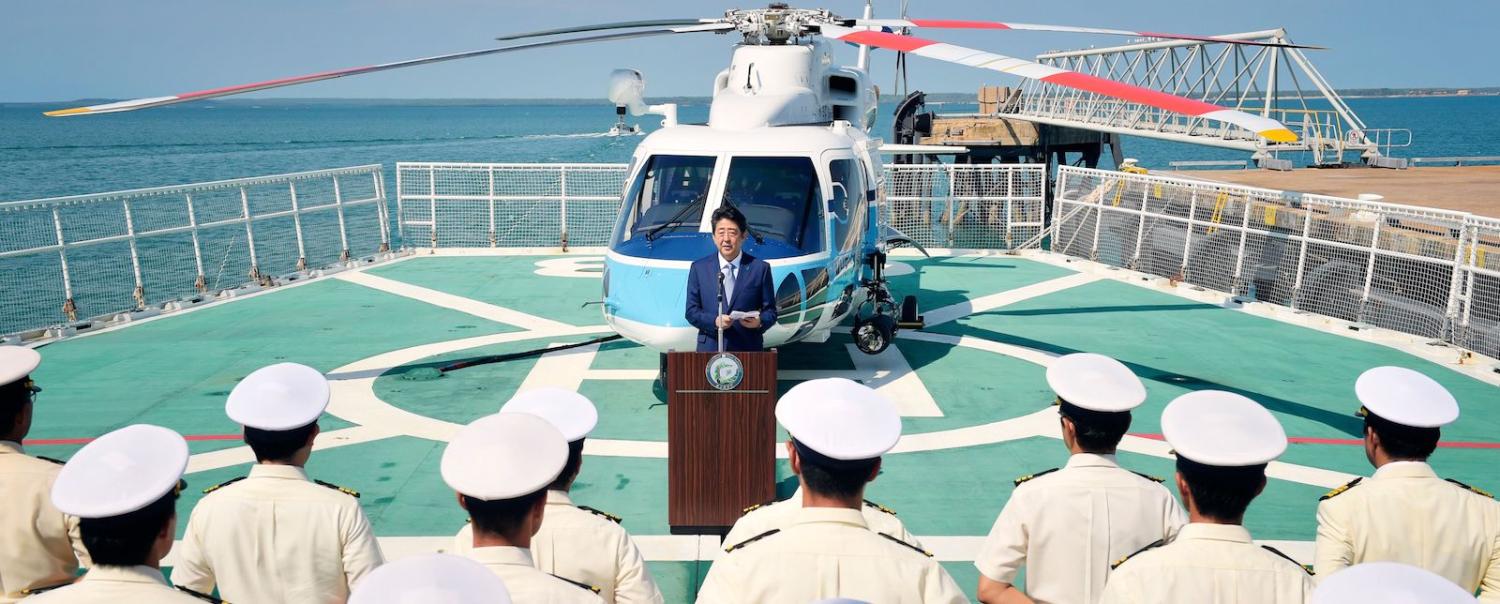The week that was on The Interpreter.
Chinese President Xi Jinping and US President Donald Trump agreed to an uneasy tariff truce at the G20. Merriden Varrall:
So if this is not about economics, what is this about? Yes, it’s geopolitics. Both leaders have their own agendas, pressures, and predilections. Trump wants to “make America great again”. And not dissimilarly, Xi wants to achieve “the China dream of rejuvenation”.
Japanese Prime Minister Shinzo Abe visited Darwin recently to speak to his Australian counterpart Scott Morrison about deeper strategic cooperation and the force that brings friends together in 2018: shared anxiety. Ian Hall and Michael Heazle:
Australia and Japan are coming to recognise that a region-wide approach is necessary for managing China’s assertiveness and ambition. It is manifestly in the interests of both – as well as of India, South Korea, Taiwan, and most Southeast Asian states – to ensure that sea lanes remain open, territorial aggrandisement is not accepted, and fishing and other rights are maintained.
US defence planners are feeling a sense of anxiety too, shown in a recent report from the US National Defense Strategy Commission. Brendan Taylor:
The Commission describes America as a “global power with global obligations” and one which must thus maintain “favourable” power balances in key regions, such as the Indo-Pacific, to underwrite its global leadership. But how realistic is it for the US to continue to realise these enduring strategic goals in a progressively multipolar world?
And Evan Laksmana argues that one of Australia’s recent regional investments, the Lombrum joint naval base in Papua New Guinea, should be carefully calibrated to engage Indonesia:
Canberra needs to balance its alliance commitments to the US, its concerns over Chinese military power, and its strategic partnership with Indonesia. But given the “sawtooth” trajectory of Indonesia-Australia defence relations – short periods of rapid development followed by sharp and painful reversals – boosting mutual transparency in defence posture development is critical.
Just south of Kashmir, a corridor into Pakistan enabling Sikh pilgrims from India to visit a gurdwara (place of worship) without a visa will struggle to improve relations between Delhi and Islamabad. Stuti Bhatnagar:
While key political actors in both India and Pakistan stake a claim for the Kartarpur project and Imran Khan is keen to take the dialogue process further, political realities in India are very different. India is in the midst of crucial state elections and a general election in 2019, which will significantly test the performance of the Modi government. In such an atmosphere, it would not be in Modi’s electoral interests to enter serious negotiations with Pakistan.
Still on the subcontinent, a recent World Health Organisation report showed India is home to 9 of the 10 worst cities in the world for atmospheric pollution. Robin Jeffrey:
Growth accelerates other needs and demands that affect air quality. Close to two-thirds of India’s electric power comes from coal-fired plants notorious for atmospheric pollution. Thirty years ago, New Delhi had 800,000 motor vehicles of all kinds; today, it has more than 10 million, plus thousands of trucks lumbering into the capital from neighbouring states.
On the Korean Peninsula, Robert Kelly argues that Seoul has a different view from Washington about the strategic consequences of a nuclear-armed Pyongyang:
The leap in the strategic threat from a nuclear North Korea is substantially smaller for South than it is for all other states. This is likely the main reason for US President Trump’s war threats and the general US hysteria over North Korean nuclearisation in 2017. The US homeland was suddenly reachable by the world’s scariest country.
And a song by rapper San E has sparked a conversation about gender in South Korea. Nicole de Souza:
The controversial song “Feminist” critiques Korea’s dating culture, beauty standards and the gender pay gap, which he calls a “f---ing fake fact”. The song has prompted a response from others in the South Korean hip-hop community, with rappers releasing diss-tracks and breaking down San E’s arguments. “What you want is for women to serve in the military,” said female artist SLEEQ, “What I want is for men not to kill women.”
